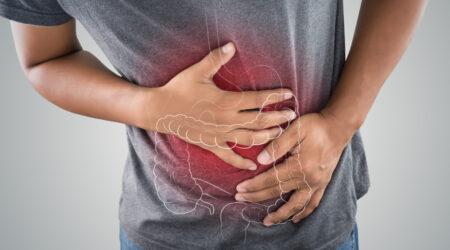Treatment And Prevention Measures For Diarrhea
Treatment and prevention measures for diarrhea
Diarrhea refers to a frequent need to have a bowel movement or loose and watery stools. It is a condition that generally lasts for a few days and can even resolve itself without any treatment. A person may suffer from acute diarrhea or chronic diarrhea. While the former lasts for up to two days, the latter lasts for up to four weeks. In this article, we shall talk about the causes of diarrhea, its symptoms, treatment, and the prevention measures that you should be aware of.

What are the symptoms of diarrhea?
The symptoms associated with diarrhea include the following:
- Abdominal cramps
- Fever
- Watery and loose stools
- Abdominal pain
- Nausea
- Bloating
- Blood in the stool
- Urgent and incessant need to have a bowel movement
There are some symptoms that require immediate medical attention; these are as follows:
- Dehydration
- Diarrhea that persists for more than two days
- Severe rectal or abdominal pain
- Black or bloody stools
- A fever of more than 102 degrees Fahrenheit
What are the potential causes of diarrhea?
Diarrhea can be a result of a number of conditions, such as the following:
- A food allergy
- A food intolerance
- A viral, bacterial, or parasitic infection
- An adverse reaction to medications
- A stomach or gallbladder surgery
What are the diseases and conditions that can be causes of diarrhea?
There are a number of conditions and diseases that can be causes of diarrhea. They are discussed below:
- Viruses : The Norwalk virus, viral hepatitis, rotavirus, and cytomegalovirus are some of the worst causes of diarrhea.
- Parasites and bacteria : Giardia lamblia and cryptosporidium found in contaminated water or food can transmit parasites and bacteria to the body.
- Medications : Taking certain antibiotics can cause diarrhea since they disturb the natural balance of the good and bad bacteria in the body. Antacids with magnesium and certain cancer drugs can also be causes of diarrhea.
- Lactose intolerance : Lactose, which is present in milk and dairy products, can cause diarrhea in people who are lactose intolerant.
- Surgery : An abdominal surgery or gallbladder removal can trigger diarrhea.
- Other digestive disorders : Crohn’s disease, celiac disease, ulcerative colitis, and Irritable Bowel Syndrome (IBS) can be causes of diarrhea as well.
What are the treatment methods for diarrhea?
- Diarrhea treatment usually involves replacing the lost fluids in the body.
- Generally, your doctor will prescribe a larger water intake or electrolyte replacement drinks, like sports drinks.
- If it is a case of bacterial infection, antibiotics will be prescribed.
- In more serious cases, intravenous therapy with fluids is undertaken.
- Overall, the doctor will decide on the treatment plan based on your health, medical history, age, the degree of dehydration, the severity and frequency of diarrhea, and the ability to tolerate varied medications or procedures.
How do you avoid developing diarrhea?
You can avoid developing diarrhea even though it can occur for various reasons. Certain actions, such as the following, can help prevent it:
- Serving and eating food immediately after it is prepared
- Washing the areas where you cook and prepare food well
- Always thawing frozen food
- Refrigerating leftovers promptly
How do you prevent viral diarrhea?
To prevent the spread of viral diarrhea to other people, you should take adequate measures, as mentioned below:
- Wash your hands frequently, such as before eating food, before and after preparing food, making contact with other people, and the like.
- Lather your hands with soap for at least 20 seconds to reduce the risk completely.
- Use hand sanitizer when washing your hands is not possible.
How do you prevent traveler’s diarrhea?
- Traveler’s diarrhea commonly affects people who travel to different countries where there are inadequate sanitation measures and contaminated food.
- When traveling in such countries, it is advisable to eat hot, well-cooked food and stay away from undercooked or raw food.
- Avoid tap water and ice cubes. Opt for bottled water, even when brushing your teeth.
- When traveling like this, be prepared with antibiotics from your doctor to reduce the risk of traveler’s diarrhea.
With the aforementioned information on the causes of diarrhea, its symptoms, treatment, and prevention, you should know what to expect and what is to be done if the condition arises.


